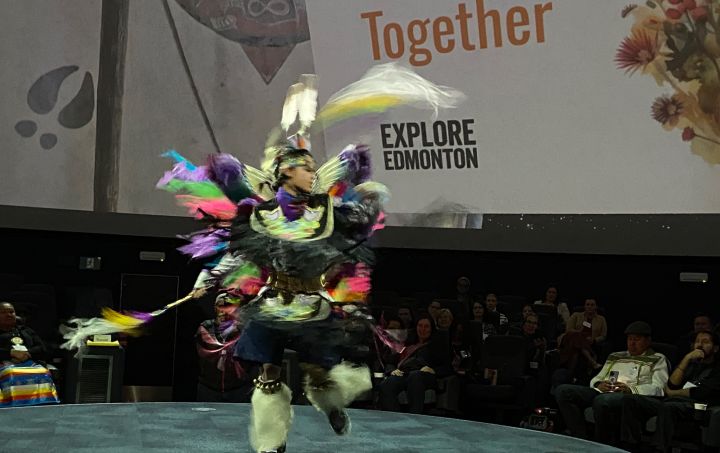Edmonton has the second-largest Indigenous population of any major city in Canada and on Tuesday, the city agency tasked with marketing Alberta’s capital as a destination for visitors, launched a new Indigenous tourism development strategy.

Details about the strategy were revealed at a media event at the Telus World of Science Edmonton.
Explore Edmonton announced that the plan was put together along with Stormy Lake Consulting and the tourism consulting firm Moccasin Trails Inc. as well as other Indigenous partners. It highlights guiding principles for promoting Indigenous cultures to tourists, as well as what types of visitors are more likely to be interested in such travel experiences.
In a news release, Paul Hawes, Explore Edmonton’s vice-president of destination development and marketing, said nurturing relationships between Indigenous tourism operators and entrepreneurs and others involved in the tourism sector is an essential component of the plan.

“This philosophy recognizes that we are living in a moment of truth and reconciliation, and Explore Edmonton understands that tourism is reconciliation in action; it is not simply a ‘moment,’ but a long-term commitment,” he said.

Get daily National news
In addition to fostering friendships and relationships within the sector, Explore Edmonton said the Indigenous tourism strategy will also be centred around “building understanding and knowledge by sharing Indigenous stories,” fostering empowerment and learning by creating a tourism incubator workshop and building a hub of resources on the Explore Edmonton website, ensuring the strategy continues to be ” Indigenous-led,” and on making it a priority to make Indigenous tourism “experiences” a part of Explore Edmonton events, as well as to bid on major Indigenous events.

The strategy announced Tuesday also identified who will be curious about taking advantage of Indigenous tourism experiences in the Edmonton area.
Domestically, Explore Edmonton said a “key” demographic will be Canadians who are 18 to 34 years old or who have families that are “seeking educational experiences together.”
Internationally, Explore Edmonton said “key audiences” are “well-travelled” Americans (specifically from California, Texas and New York) and “long-haul travellers” from Germany and the United Kingdom.
The agency also said the business community is considered to be a key audience, noting major business events could be hosted by Indigenous-owned venues.
“By sharing their cultures and approaches to environmental stewardship and extending their hospitality to the world, First Nation, Métis and Inuit communities and businesses can achieve increased prosperity, heritage preservation and self-determination,” Hawes said.
According to Explore Edmonton, there are 89 Indigenous tourism businesses in Edmonton and the surrounding area, and about two-thirds of those are Indigenous-owned and operated.










Comments
Want to discuss? Please read our Commenting Policy first.